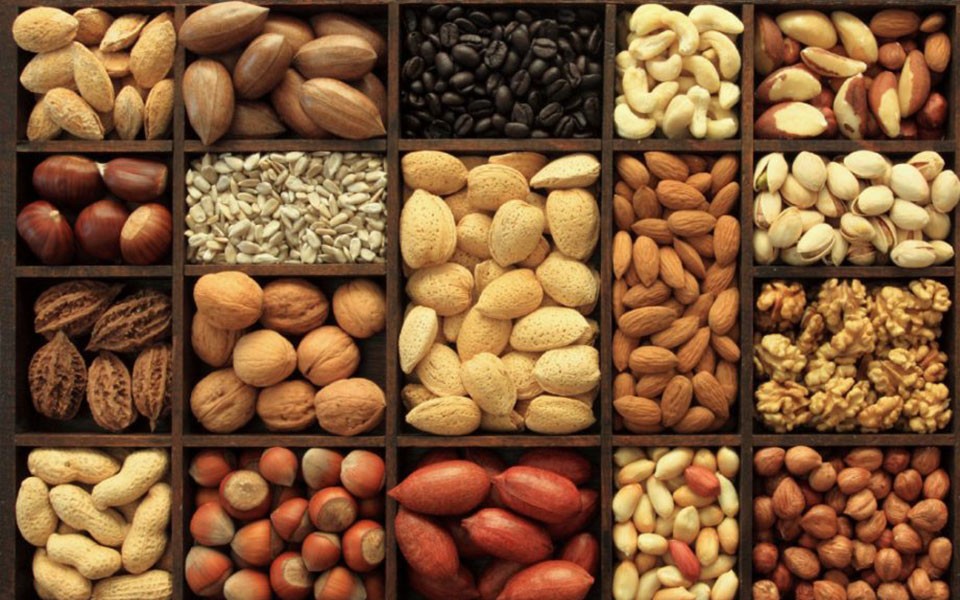New York, April 4: while red meat-rich in protein-is linked with increased risk of heart disease, protein from nuts and seeds could be beneficial for the human heart, suggests a study consisting of more than 80,000 participants.
The study, appearing in the International Journal of Epidemiology, found that people who consumed large amounts of meat protein experienced a 60 per cent increase in cardiovascular disease (CVD), while people who consumed large amounts of protein from nuts and seeds experienced a 40-per cent reduction in CVD.
"While dietary fats are part of the story in affecting risk of cardiovascular disease, proteins may also have important and largely overlooked independent effects on risk," said Gary Fraser, from Loma Linda University in California. He also added that nutritionists have traditionally termed “Bad fats” in meats and “Helpful fats” in nuts as casual agents. As a result of being high in unsaturated fat, nuts and seeds are traditionally included in the "good fat" category. However, it is also possible that "good protein" that also adds to their positive health impact.
"This new evidence suggests that the full picture probably also involves the biological effects of proteins in these foods," he said.
For the study, the team compared animal proteins versus plant proteins in 81,337 men and women.
Associations between the "meat" and "nuts and seeds" protein factors and cardiovascular outcomes were strong and could not be ascribed to other associated nutrients considered to be important for cardiovascular health.
Healthy diets can be advocated based on protein sources, preferring low contributions of protein from meat and higher intakes of plant protein from nuts and seeds, the study noted.
Let the Truth be known. If you read VB and like VB, please be a VB Supporter and Help us deliver the Truth to one and all.
Ottawa (PTI): Three Indian nationals have been arrested by Canadian police on an anti-extortion patrol and charged after bullets were fired at a home.
Harjot Singh (21), Taranveer Singh (19) and Dayajeet Singh Billing (21) face one count each of discharging a firearm, and all have been remanded in custody until Thursday, the Surrey Police Service (SPS) said in a statement on Monday.
The suspects were arrested by patrol officers after an early morning report of shots fired and a small fire outside a home in Surrey's Crescent Beach neighbourhood, the LakelandToday reported.
On February 1, 2026, the SPS members were patrolling in Surrey’s Crescent Beach neighbourhood when reports came in of shots being fired and a small fire outside a residence near Crescent Road and 132 Street.
The three accused were arrested by SPS officers a short time later, the statement said.
SPS’s Major Crime Section took over the investigation, and the three men have now been charged with Criminal Code offences, it said.
All three have been charged with one count each of discharging a firearm into a place contrary to section 244.2(1)(a) of the Criminal Code.
The investigation is ongoing, and additional charges may be forthcoming. All three have been remanded in custody until February 5, 2026.
The SPS has confirmed they are all foreign nationals and has engaged the Canada Border Services Agency, it said.
One of the suspects suffered injuries, including two black eyes, the media report said.
Surrey police Staff Sgt. Lindsey Houghton said on Monday that the suspect had refused to comply with instructions to get out of the ride-share vehicle and started to "actively resist."
"As we were trained, he was taken to the ground and safely handcuffed," said Houghton.
A second suspect with a black eye was also injured in the arrest after refusing to comply, Houghton said.
The arresting officers were part of Project Assurance, an initiative that patrols neighbourhoods that have been targeted by extortion violence.
Houghton said the Canada Border Services Agency (CBSA) is also involved because the men are foreign nationals, and the trio may face additional charges.
It's not clear if the men are in the country on tourist visas, a study permit, or a work permit, but Houghton said CBSA has started its own investigation into the men's status.
Surrey has seen a number of shootings at homes and businesses over the last several months, but there's been an escalation since the new year.





